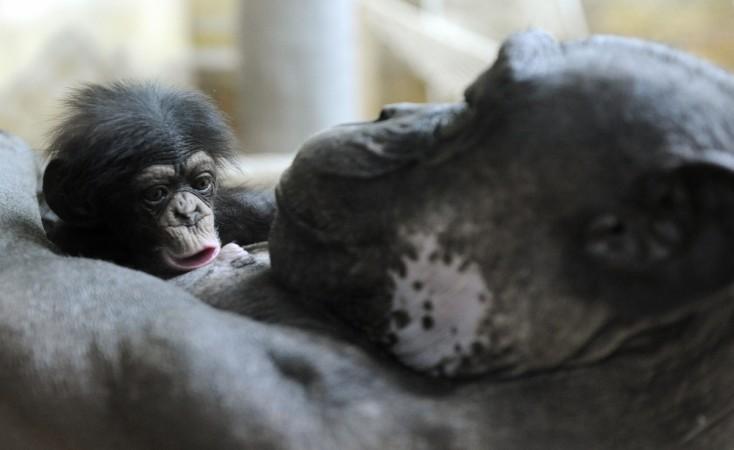
A study conducted on male chimpanzees has found that they are more protective and caring about their offspring than it was previously believed.
The researchers found that the male chimpanzees weren't just aiming at future mating attempts, but were spending time with their little ones while caring for them and grooming them. This turned out to be surprising as this species is considered to be promiscuous and researchers even doubted if male chimps could identify their own offspring.
This research aids the paternal effort theory, which points out that males can relate more with mothers in order to safeguard their little ones instead of trying to impress the female.
The long-term research 'Chimpanzee fathers bias their behaviour towards their offspring,' which lasted over a span of 25 years, was conducted with the help of Jane Goodall Institute. The data analysed by the researchers was collected from Gombe Stream National Park in Tanzania.
The study analysed 17 father chimpanzees and 49 mother-infant pairs to figure out if the male could identify his offspring and if they behaved differently around them. The researchers figured out that the males linked up with the mother of their little ones during babyhood and the levels of interactions between the infant and father was more than expected.
"As anthropologists, we want to understand what patterns could have existed early in human evolution that help explain how human behaviour evolved," said Carson Murray, the lead author and assistant professor of anthropology the George Washington University.
"This research suggests that males may sometimes prioritise relationships with their offspring rather than with potential mates. For a species without pair-bonds where it was assumed fathers didn't know which infants were their own, this is an important finding," Murray added.
















